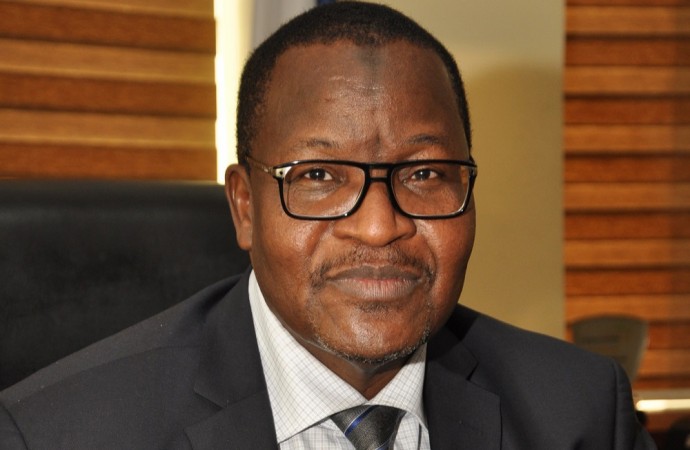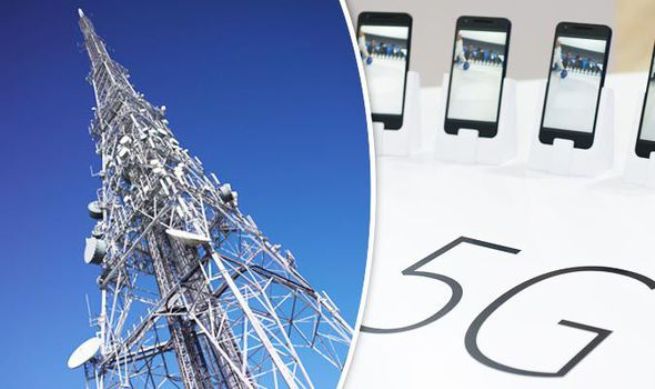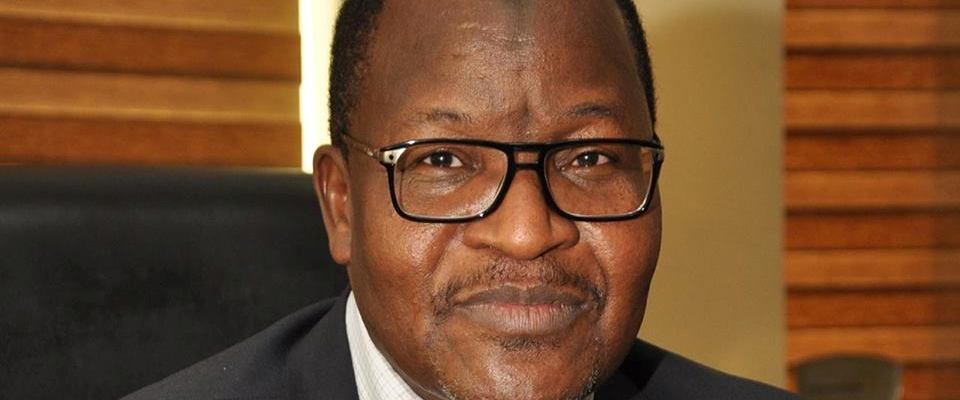…tasks practitioners on next phase of growth
…as NCC receives Best Agency Award for development
The current efforts of the Nigerian Communications Commission (NCC) to facilitate deployment of the Fifth Generation (5G) technology will further catalyse the innovativeness and creativity of the entertainment industry in Nigeria and raise its productivity and contribution to the gross domestic product (GDP) to new levels. The Executive Vice Chairman and Chief Executive Officer of NCC, Prof. Umar Danbatta, has said.
Danbatta, stated this in a keynote address delivered at the Nollywood Economic Outlook (NEO 2022) organised in Lagos recently, and well-attended by Nollywood personalities and other critical stakeholders in the creative industry.
The organisers of the NEO 2022 forum also presented the Award of “Best Agency in Government Sustainable and Development Agenda” to the Commission for its role in facilitating digital connectivity to fast-track Nigeria’s economic growth as well as accelerate attainment of the Millennium Development Goals (MDGs) in Nigeria.
Speaking on the theme: “Leveraging 5G Technology for the Advancement of Creative Industry,” Danbatta, who was represented by the NCC’s Head of Media and Public Relations, Grace Ojougboh, said 5G technology will disrupt the media business models in the creative industry just as he emphasised that need for practitioners in the creative industry to leverage the power of 5G technology to expand the frontiers of the industry for the next phase of its growth.
“The 5G will revolutionize how content is produced, distributed, and consumed, unlocking existing technologies for wider audiences and enabling a new wave of applications. It will also enable broadcasters to transmit footage back to their base within a short period of time, thus creating more coverage opportunities,” Danbatta said.
He explained that 5G technology networks will transform businesses leading to higher productivity improvements via real-time flow of information. “Consequently, this will permit the optimization of business functions and creation of new value chains for customers through advances in Internet-based web technology and search engines. This is expected to lead to the development and pervasiveness of Over-the-top (OTT) services,” he said.
Danbatta further stated that running 5G network, over-the-top (OTT) platforms and applications will also offer video content over the internet as against the traditional cable or satellite television. This, he said, was because technologies enabled by 5G will utilize novel and innovative channels to enhance the experience of viewers.
“So, for the creative industry, 5G will also enable delivery of high-quality content direct to consumers by the broadcast industry at the touch of a button. Accordingly, it will offer users seamless experience when they stream videos on mobile devices (Smartphones and tablets) and web televisions that use solutions such as Chromecast, Apple TV and Amazon Fire TV, as well as Smart TVs,” the EVC said.
Danbatta told the audience that as demands for high-quality content and streaming increase, 5G connectivity presents the perfect opportunity to push the OTT viewer experience to the next level. He said with super-fast 5G download speeds up to 10 times faster than the current networks and therefore, lower latency that will improve viewers experience of video on demand and make them to enjoy highly reliable services.
The 5G technology will allow the creative industry to better understand future requirements, explore new creative formats, build new mobile video capabilities, pursue strategic partnerships, and assess their data collection practices and database requirements.
“Information and Communications Technology has already made the world a global village due to its ubiquitous connection to remote locations across the globe. The 5G technology capabilities will make the world even smaller, thus enabling easy distribution of content across the globe in real time,” he stated.
Danbatta concluded by stating that 5G technology is set to redefine the way people live and work and will usher the much-talked-about Fourth Industrial Revolution (4IR) with its promise of a rapid social and economic development of the country.
Danbatta used the opportunity of the event to intimate the audience of the policy and regulatory efforts of the government, through the Federal Ministry of Communications and Digital Economy as well as the NCC, which have culminated in the licensing of spectrum resources for the deployment of 5G network in the country.
He asserted that disruptive innovations shaping the future of the world, such as; Mobile Broadband, Internet of Things, Cloud Computing, Autonomous and Near-Autonomous Vehicles, Artificial Intelligence, Augmented Reality, Block-Chain Technology, Robotics and Quantum Computing and more, are pivoted on telecommunications, especially the 5G technology.
Earlier, the Host of the programme and Executive Secretary, Board of Trustees of Actors Guild of Nigeria (AGN), Sunny McDon , said there had been all sorts of predictions about the introduction of 5G technology and the sheer number of devices that will become connected through its introduction in Nigeria. He therefore advocated a focus on the impact on the creative industry, businesses and Nigeria’s socio-economic development.
The Lagos State Commissioner for Tourism, Arts and Culture, Mrs. Uzamat Akinbile-Yussuf, who was represented at the event by Mr. Idowu Johnson, spoke on “Imperatives for Building Lasting Structures for the Sustenance of the Creative Industry.”




